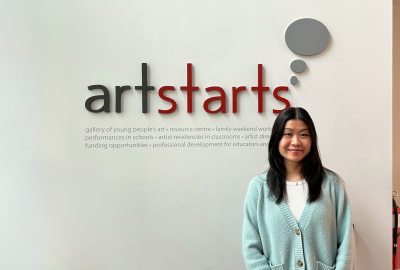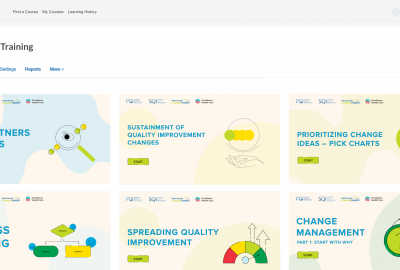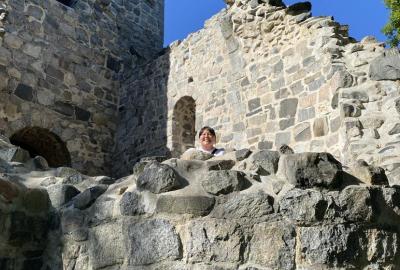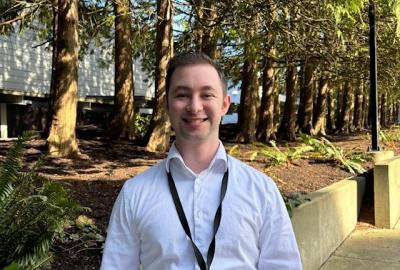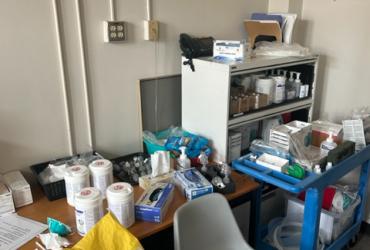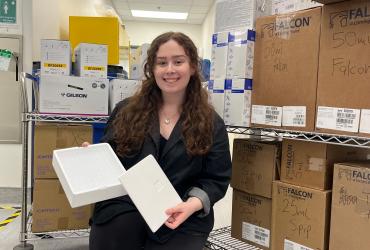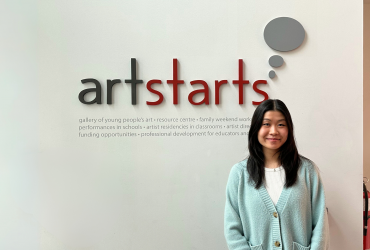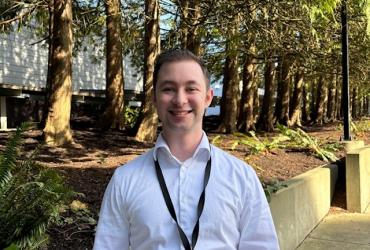Reflection
Since this was my first desk job, I came into it open minded and ready to learn a new style of working. The reason I applied to this job was to gain experience with working alongside Indigenous Peoples and to learn about the Species At Risk Act. I am happy with the skills I have learnt and the knowledge I have gained surrounding these topics and working downtown Vancouver was very cool and not something I had expected to do for several years to come. However, I definitely am not someone who would choose a desk job or a corporate job again. I still find it quite challenging to feel accomplished and seeing my step count at the end of the work day at less than 3000 steps makes me feel very unproductive. I am glad I have realized this as it filters out many potential jobs and I am keen to work in the field in the near future.
I really loved working with all the amazing people on my team, especially my close group of three people who I really got along with and felt very comfortable to go to whenever I needed to. I am sad to leave this team but I am excited to take the skills and experiences I have had here to my future jobs and career.
Most Valuable Aspects of This Experience
I think my most valuable experience of this job was connecting with my coworkers; I am typically very independent and I carry that into my work style. For example, in a previous co-op role I typically worked alone on a farm and other research teams around me had three or four students all working together, yet I was perfectly okay working by myself.
However, with this co-op there is much more connecting and collaborating with those around you whether you are in the office or online in a Teams meeting. This helped me learn to work with others and to ask for help more often. Being with other co-op students in the office and becoming close through the term was fun and made the longer work days more enjoyable, resulting in connections that I hope to hold onto. I am happy that I had this experience and although it may not result in a career opportunity, it has magnificently increased my knowledge around the topic and policy of Species at Risk (SAR) as well as developed my communication skills in a formal business setting. I am excited for my return to school to utilize these new skills and prepare for my next work experience.
Connection to Academic Studies or Career Goals
This role will be applicable to my studies as I was required to do extensive organization, read up on several species descriptions and discover better ways to articulate my thoughts and ideas.
Since this unit is very new and continuously growing, everything moves very quickly and there are normally several different pieces moving at once. This has forced me to amp up my ability to organize my work and to distribute my workload evenly. I have a tendency to get things done as efficiently as I can, even if it extends my day tremendously. Due to there being so many things to get done and not much time to do so, I was required to allocate my tasks by priority and then make a weekly plan to tackle each one. I will definitely be integrating these into my busy school schedule this coming semester.
Throughout my work term, I was tasked with things related to specific species. Such as, drafting letters about a species at risk management plan, drafting multi-species posters, or creating species at risk slide decks. All of this required me to do background research for the particular species and then include the relevant information in those documents. This is helpful as I am a biology major and some courses require you to know certain functions or physiology of a certain animal and with this grown ability to pick out the key information, I can apply it when necessary during my studies.
Additionally, when creating conversations with others or making a suggestion, I have forced myself to be more clear when doing so and being able to elaborate in a professional manner when necessary. This can be helpful for taking examinations or communicating with a professor at SFU.
Advice for Future Students
When approaching this position, understand that every experience is a learning moment and I had a lot of those during my time here.
As I have said several times, this unit is very new and still gathering its bearings and capacity. The subjects involved in this role are very detailed and have a lot of depth, making it quite difficult and discouraging to understand the ins and outs of the unit and department. The team is very aware of this and so they are extremely understanding of taking a lot of time to get a grasp on the role. It took me about four to five months to feel confident in my abilities to do this job and to feel comfortable making suggestions and asking questions. On the bright side, many of your coworkers are also new and learning as they go which makes the learning process for yourself slightly easier and less rushed.
There is a lot of opportunity to learn through workshops, online courses, seminars and other resources that are typically internal to ECCC-CWS. Always keep in mind that this is part of your schooling so you are here to learn and develop skills; with that, don't be afraid to ask questions or ask for more clarity. It may feel silly to ask questions about a topic after everyone else seems to have an understanding but as I said, there is a lot to learn.
And lastly, be patient. Don't put too much pressure on yourself to understand everything that is going on, it will come with time!:)
Overall, have fun, ask as many questions as you can, attend team meetings and barbeques and take any opportunity to go visit the Pacific Wildlife Research Centre (PWRC) in Delta. Please email me if you have any questions about this role :)

